This project is part of the @thi.ng/umbrella monorepo.
Function collection for modular GPGPU / shader programming with @thi.ng/shader-ast.
A growing collection (currently 110+) of useful functions & higher order constructs for GPU / shader programming, acting as optional standard library for @thi.ng/shader-ast based workflows.
These functions can be imported like normal TS/JS functions and (in TS) are fully type checked.
Some of the functions have been ported from GLSL:
- Signed Distance Field primitives and operations are based on work by Inigo Quilezles (iq).
- Hash functions (PRNGs) by Dave Hoskins
- Noise functions by Ashima Arts / Stefan Gustavson
- Various functions from thi.ng/shadergraph, thi.ng/vectors, thi.ng/matrices, thi.ng/color
Reference:
- http://www.iquilezles.org/www/articles/distfunctions2d/distfunctions2d.htm
- http://www.iquilezles.org/www/articles/distfunctions/distfunctions.htm
- https://www.shadertoy.com/view/4djSRW
- https://github.com/ashima/webgl-noise
STABLE - used in production
- @thi.ng/shader-ast-glsl - Customizable GLSL code generator for @thi.ng/shader-ast
- @thi.ng/shader-ast-js - Customizable JS code generator, compiler & runtime for @thi.ng/shader-ast
- @thi.ng/webgl - WebGL & GLSL abstraction layer
yarn add @thi.ng/shader-ast-stdlib// ES module
<script type="module" src="https://unpkg.com/@thi.ng/shader-ast-stdlib?module" crossorigin></script>
// UMD
<script src="https://unpkg.com/@thi.ng/shader-ast-stdlib/lib/index.umd.js" crossorigin></script>Package sizes (gzipped, pre-treeshake): ESM: 5.76 KB / CJS: 6.53 KB / UMD: 5.98 KB
Several demos in this repo's /examples directory are using this package.
A selection:
| Screenshot | Description | Live demo | Source |
|---|---|---|---|
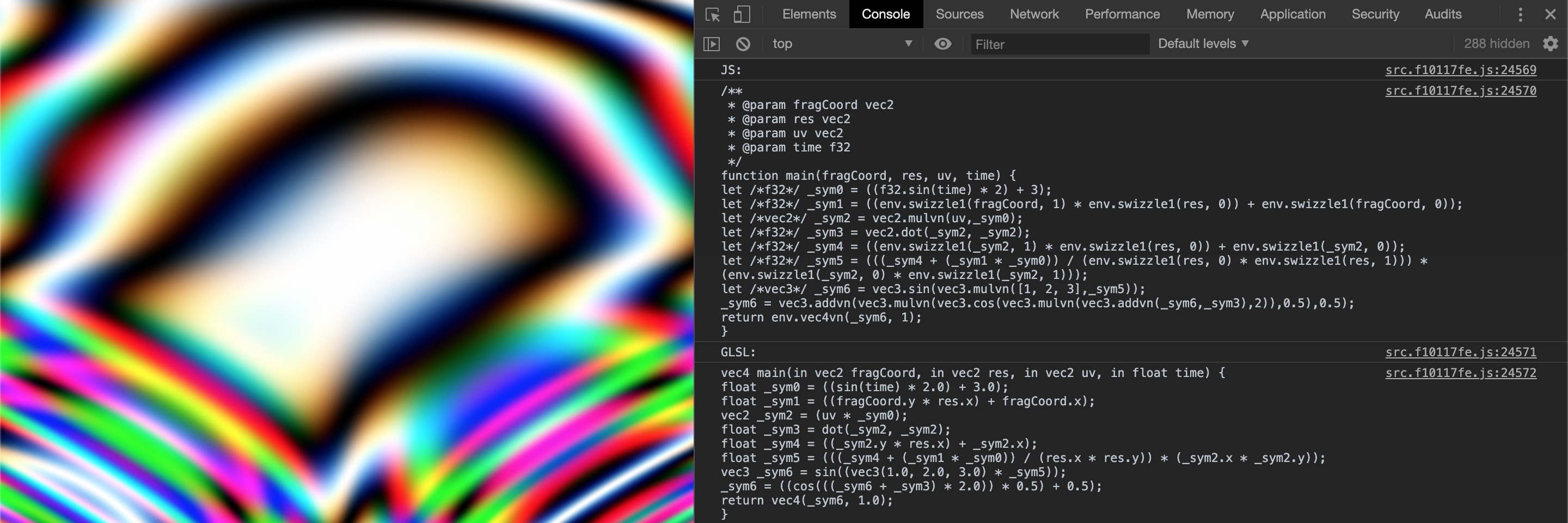 |
2D canvas shader emulation | Demo | Source |
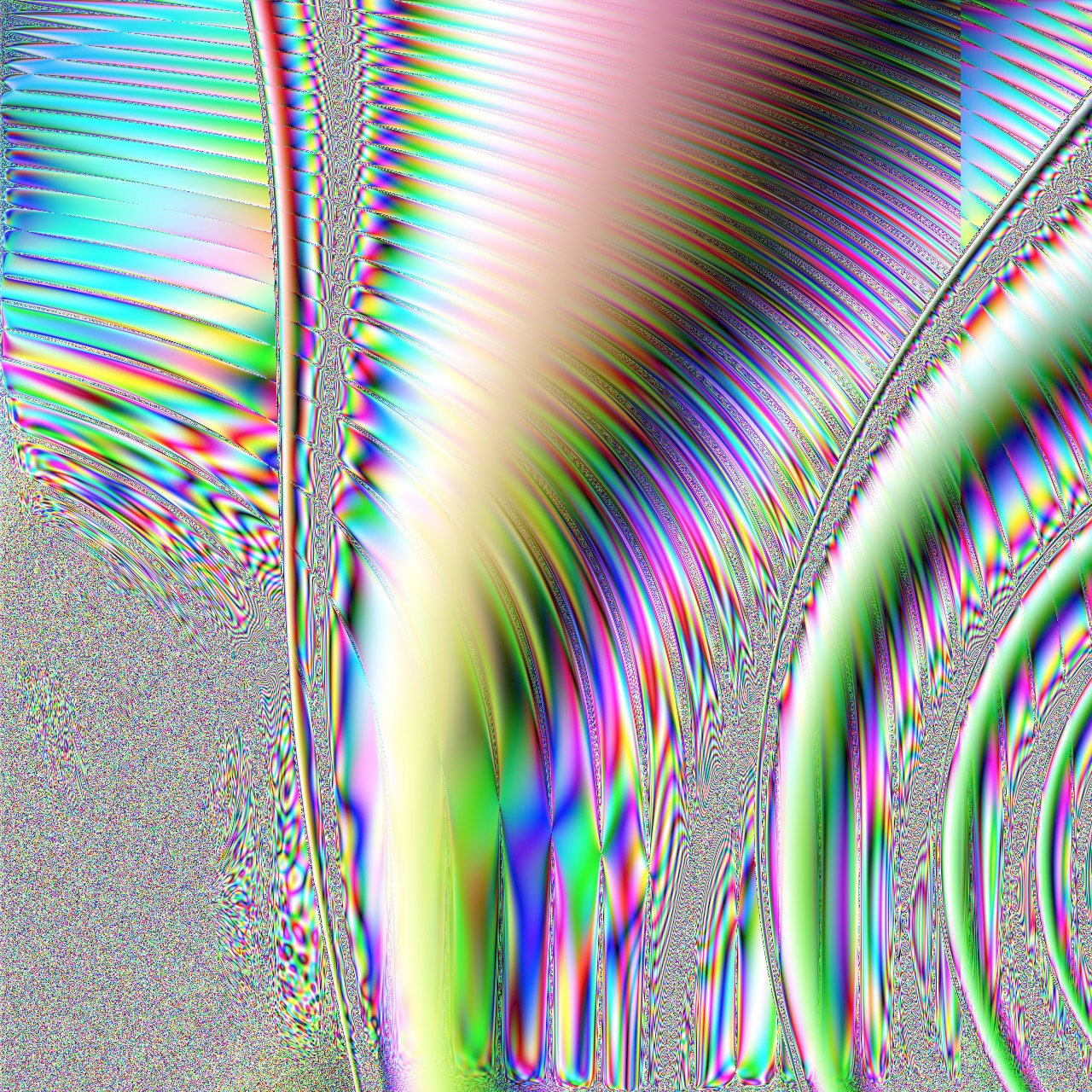 |
Evolutionary shader generation using genetic programming | Demo | Source |
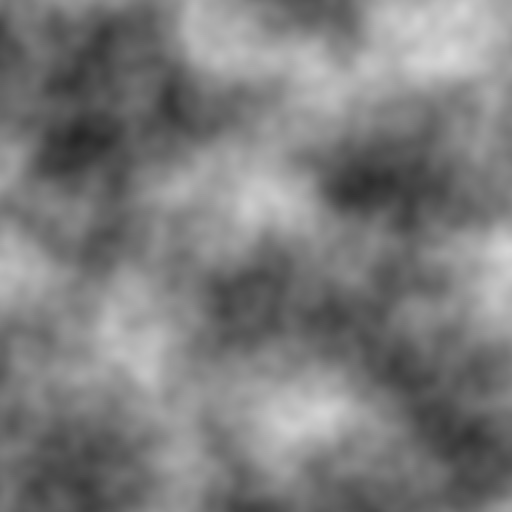 |
HOF shader procedural noise function composition | Demo | Source |
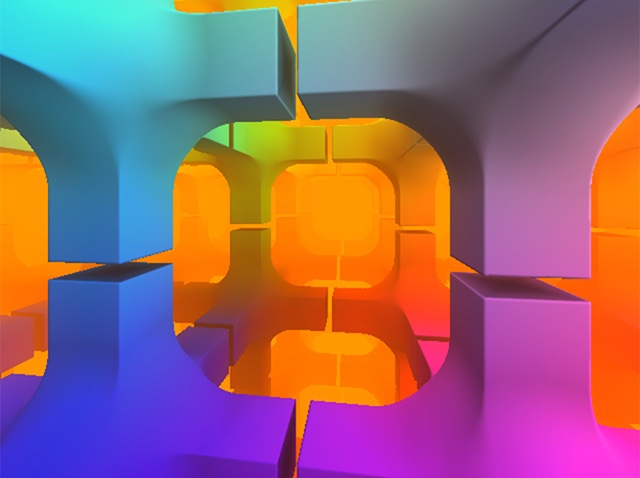 |
WebGL & JS canvas2D raymarch shader cross-compilation | Demo | Source |
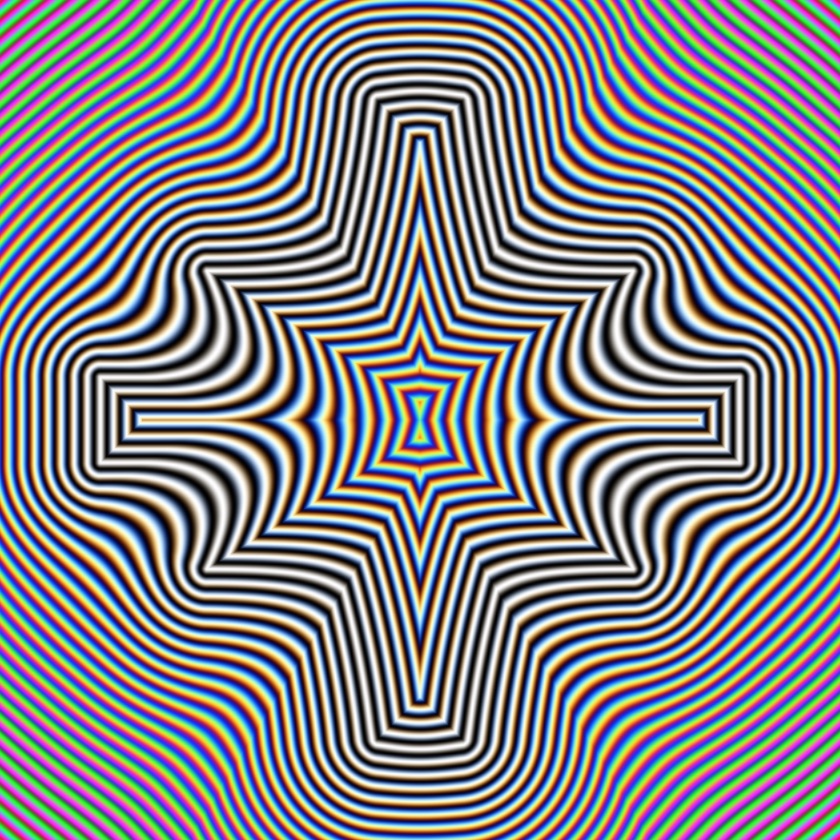 |
WebGL & JS canvas 2D SDF | Demo | Source |
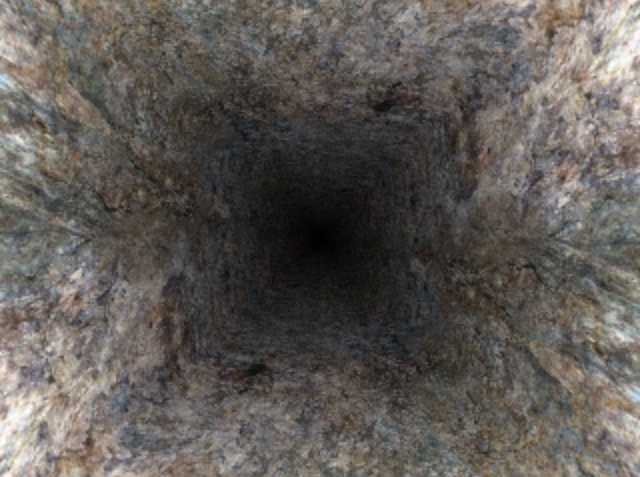 |
WebGL & Canvas2D textured tunnel shader | Demo | Source |
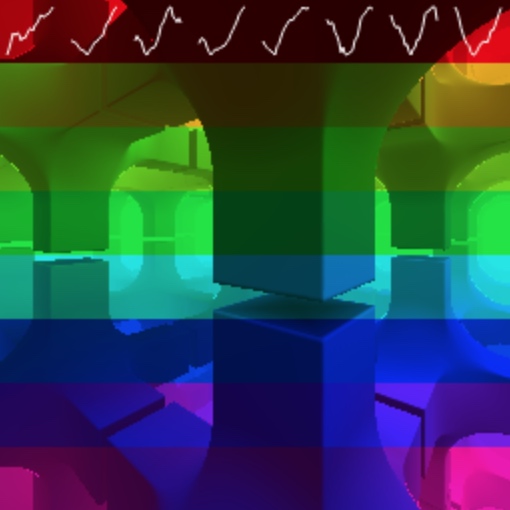 |
Fork-join worker-based raymarch renderer | Demo | Source |
| Minimal multi-pass / GPGPU example | Demo | Source | |
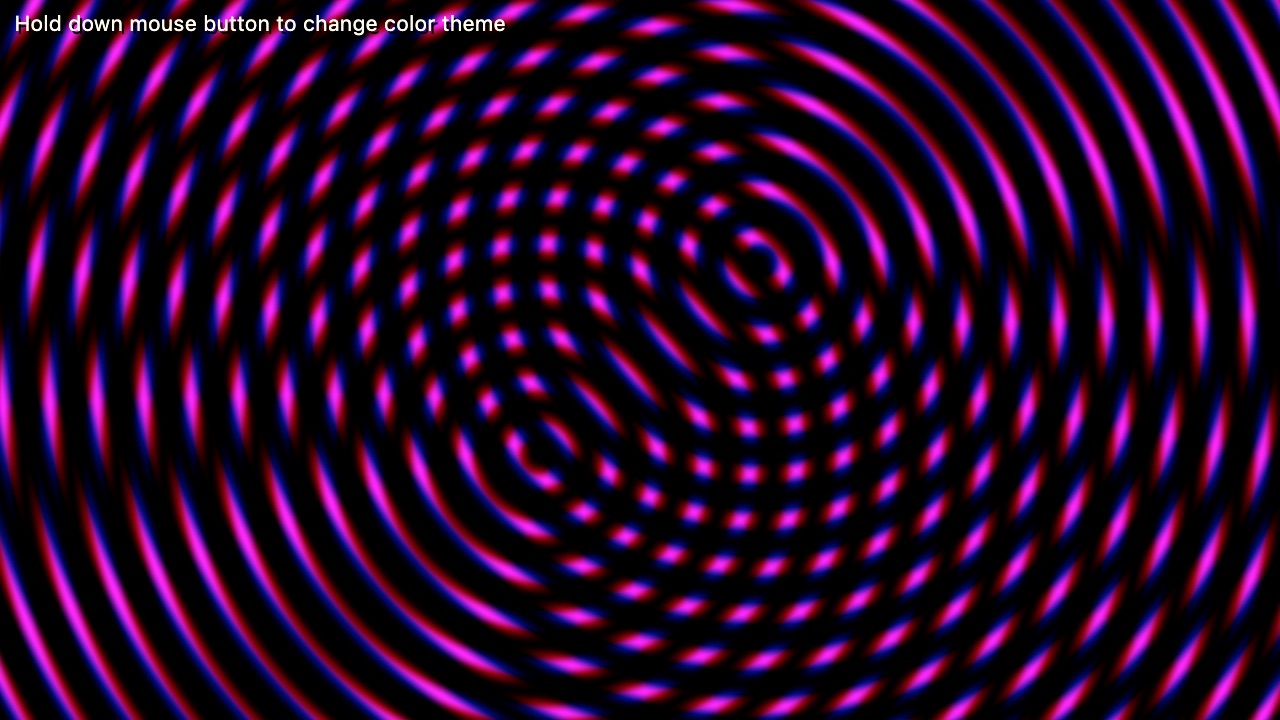 |
Shadertoy-like WebGL setup | Demo | Source |
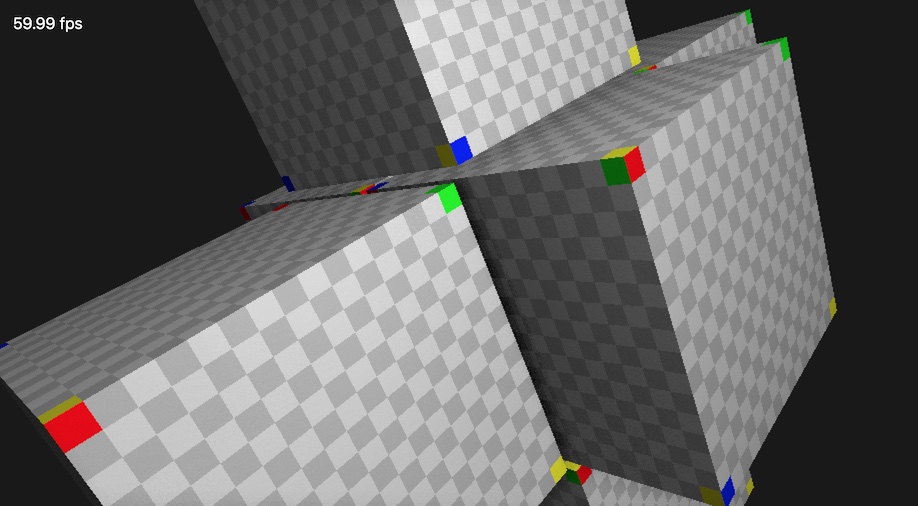 |
WebGL screenspace ambient occlusion | Demo | Source |
Below is a brief demonstration of a fully defined shader pair, implementing basic diffuse lighting:
import { assign, defMain, vec4 } from "@thi.ng/shader-ast";
import { diffuseLighting, halfLambert, transformMVP } from "@thi.ng/shader-ast-stdlib";
import { shader } from "@thi.ng/webgl";
// obtain WebGL/WebGL2 context
// the generated shader code will automatically target the right GLSL version
const gl = ...
// transpile & instantiate fully working shader
const myShader = shader(gl, {
// vertex shader fn
// given args are symbolic uniforms, attribs, varyings & GL builtin vars
// here `ins` are vertex attribs and `outs` are "varying"
vs: (gl, unis, ins, outs) => [
defMain(() => [
assign(outs.vnormal, ins.normal),
assign(gl.gl_Position, transformMVP(ins.position, unis.model, unis.view, unis.proj)),
])
],
// fragment shader fn
// here `ins` are "varying" & `outs` are output variables
fs: (gl, unis, ins, outs) => [
defMain(() => [
assign(
outs.fragCol,
vec4(
diffuseLighting(
halfLambert(normalize(ins.vnormal), unis.lightDir),
unis.diffuseCol,
unis.lightCol,
unis.ambientCol
),
1
)
)
])
],
// attribs w/ optional location info
attribs: {
position: ["vec3", 0],
normal: ["vec3", 1]
},
varying: {
vnormal: "vec3"
},
// uniforms with optional default values / functions
uniforms: {
model: "mat4",
view: "mat4",
proj: "mat4",
lightDir: ["vec3", [0, 1, 0]],
lightCol: ["vec3", [1, 1, 1]],
diffuseCol: ["vec3", [0.8, 0, 0]],
ambientCol: ["vec3", [0.1, 0.1, 0.1]]
}
});The #defines are auto-injected by default, but can be disabled /
customized / replaced...
#version 300 es
#ifdef GL_FRAGMENT_PRECISION_HIGH
precision highp int;
precision highp float;
#else
precision mediump int;
precision mediump float;
#endif
#ifndef PI
#define PI 3.141592653589793
#endif
#ifndef TAU
#define TAU 6.283185307179586
#endif
#ifndef HALF_PI
#define HALF_PI 1.570796326794896
#endif
uniform mat4 model;
uniform mat4 view;
uniform mat4 proj;
uniform vec3 lightDir;
uniform vec3 lightCol;
uniform vec3 diffuseCol;
uniform vec3 ambientCol;
layout(location=0) in vec3 position;
layout(location=1) in vec3 normal;
out vec3 vnormal;
void main() {
vnormal = normal;
gl_Position = ((proj * (view * model)) * vec4(position, 1.0));
}The fragColor output variable is auto-created by
@thi.ng/webgl
if no other output vars are defined. For WebGL v1 this is defined as an
alias for gl_FragColor...
#version 300 es
/* (omitting #define's for brevity, same as in VS) */
uniform mat4 model;
uniform mat4 view;
uniform mat4 proj;
uniform vec3 lightDir;
uniform vec3 lightCol;
uniform vec3 diffuseCol;
uniform vec3 ambientCol;
in vec3 vnormal;
layout(location=0) out vec4 fragColor;
void main() {
fragColor = vec4((((lightCol * ((dot(normalize(vnormal), lightDir) * 0.5) + 0.5)) * diffuseCol) + ambientCol), 1.0);
}Several of the functions included here are defined as higher-order functions, providing powerful functional compositional features not usually seen in shader code and not easily achievable via the usual string templating approach used by most other GLSL libraries.
For example, the
additive()
HOF takes a single-arg scalar function and a number of octaves. It
returns a new function which computes the summed value of fn over the
given number octaves, with a user defined phase shift & decay factor
(per octave). This can be used for additive wave synthesis, multi-octave
noise or any other similar use cases...
Due to the way user defined AST functions keep track of their own call
graph, the anonymous function returned by additive does not need to be
pre-declared in any way and also ensures all of its own function
dependencies are resolved and emitted in the correct topological order
during later code generation.
Below is the main shader code of the Simplex noise example.
import { add, defn, float, ret, sym, vec2, vec3, vec4 } from "@thi.ng/shader-ast";
import { additive, aspectCorrectedUV, fit1101, snoise2 } from "@thi.ng/shader-ast-stdlib";
const mainImage = defn(
"vec4",
"mainImage",
["vec2", "vec2", "float"],
(frag, res, time) => {
let uv;
let noise;
return [
// compute UV coords and assign to `uv`
uv = sym(aspectCorrectedUV(frag, res)),
// dynamically create a multi-octave version of `snoise2`
// computed over 4 octaves w/ given phase shift and decay
// factor (both per octave)
noise = sym(
additive("vec2", snoise2, 4)(add(uv, time), vec2(2), float(0.5))
),
// `noise` is in [-1..1] interval, use fit1101 to fit to [0..1]
ret(vec4(vec3(fit1101(noise)), 1))
];
}
);Run the above-linked example and view the console to see the full generated shader code. Also check out the raymarching demo which uses several other HOFs from this library to drastically simplify user code.
TODO. For now, please see doc strings in source for details...
toLineartoSRGBluminanceRGB
Use the porterDuff higher order function to define new blend modes.
See
@thi.ng/porter-duff
for reference.
12 standard PD operators for vec4 RGBA colors:
blendSrcOverblendDestOverblendSrcInblendDestInblendSrcOutblendDestOutblendSrcAtopblendDestAtopblendXorblendPlus
fogLinearfogExpfogExp2
lamberthalfLambertdiffuseLightingtrilight
additivecartesian2/cartesian3clamp01/clamp11cross2/crossC2distChebyshev2/distChebyshev3/distChebyshev4distManhattan2/distManhattan3/distManhattan4fit01/fit11/fit1101/fit0111magSq2/magSq3/magSq4maxComp2/maxComp3/maxComp4minComp2/minComp3/minComp4perpendicularCCW/perpendicularCWorthogonal3polar2/polar3sincos/cossin
lookattransformMVPsurfaceNormalrotation2rotationX3/rotationY3/rotationZ3rotationX4/rotationY4/rotationZ4
hash2/hash3hash11/hash12/hash13hash21/hash22/hash23hash31/hash32/hash33hash41/hash42/hash43/hash44permute/permute3/permute4snoise2voronoise2worley2/worleyDist/worleyDistManhattan
raymarchAOraymarchDirraymarchNormalraymarchScenerayPointAt
aspectCorrectedUV
sdfAnnularsdfBox2sdfBox3sdfCirclesdfCylindersdfIntersectsdfLine2sdfLine3sdfPlane2sdfPlane3sdfRepeat2sdfRepeat3sdfRoundsdfSmoothIntersectsdfSmoothSubtractsdfSmoothUnionsdfSpheresdfTorussdfTriangle2sdfUnion
indexToCoord/coordToIndexindexToUV/uvToIndexreadIndex1/readIndex2/readIndex3/readIndex4
Karsten Schmidt
© 2019 - 2020 Karsten Schmidt // Apache Software License 2.0